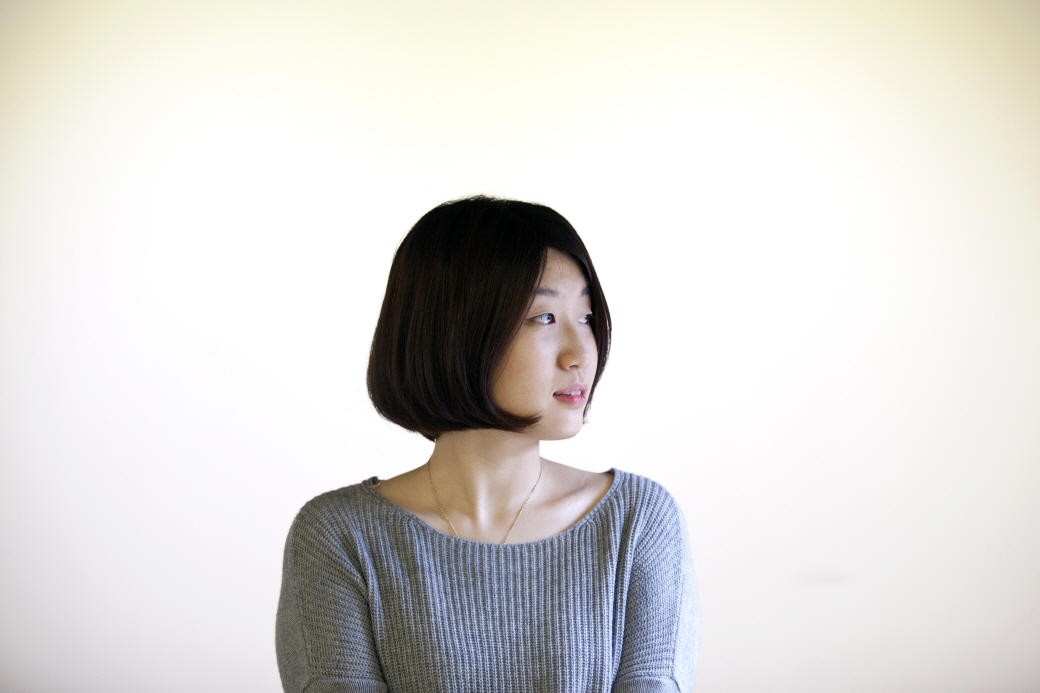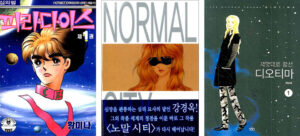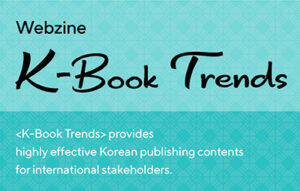A charming author and her fascinating story
2020.03.02
Is there anything more exciting than imagination? Many people agree with the idea that if you take away imagination from a human being, you will see nothing left. Author Serang Chung would nod her head to this more than anyone for sure. She is someone that has boundless imagination. Besides, the world she created makes not only herself but everyone joyful. So her imagination brought to reality through letters is now turning into a video, going beyond paper books. As the stories are rooted in the author’s imagination that are not tied to anything, the news is more welcoming to hear.

We heard that you worked as an editor in the so-called “pure literature” field such as Minumsa and Munhakdongne. Now you have built a firm reputation in the field of genre literature. Since when were you first attracted to this field? And we would also like to know how that made you decide to become a writer.
Well, I think it is more precise to call it “mainstream literature” than “pure literature.” I did not hesitate at all because as a reader, I have been fully enjoying both mainstream literature and genre literature. There was no special reason for this. Sometimes I wanted to cover topics that I want to write about in a totally intimate and familiar way. On the other hand, I sometimes wanted to carry out the story in a 180-degree different style. So I think I have been making choices that suit my intention each time.
For genre literature like SF and fantasy, it is quite a struggle to convince the readers that already have background knowledge while it is also important to build the unique world of the author him or herself. It becomes tougher when the author is not a fan of that genre. What was the genre that you were particularly attached to?
The genre that I am most attached to is fantasy. I like stories that begin talking about daily life and suddenly take the flow in an unexpected direction and also stories that manufacture a totally different universe. I find this genre interesting, as I can try big topics changing one or two conditions in the real world.
I believe stories are a tool for empathy and expansion. It has been this way since
prehistoric times, and it will continue being so in the future, as well – this is the point that I find attractive.
If there are movies, novels, or games that greatly influenced you to become an author today, can you pick three among them and tell us why?
It was so lucky to be growing up during the renaissance of romance comics in Korea. It is because I got to meet stories that I can easily bring myself into even though they were so massive in scale. I was particularly a fan of writers Hwang Mina, Kang Kyung-Ok, and Kwon Gyo-Jeong. I recommend <Paradise (Seoul Media Group)> by writer Hwang Mina, <Normal City (Haksan Publishing)> by writer Kang Kyung-Ok, and <The Random Vessel Diotima (Image Frame)>.

You seemed to be quite provocative when you turned to the mainstream literature once again. You needed a literary award to advertise yourself – you wrote a book for the award, and you did win it as you wanted. And you left a comment “I think awards are the best.” How would you recall the year 2017, when you were at the center of numerous hot issues?
Well, I was skeptical about whether the environment allowed the author and the readers to naturally have a meeting together when I just made a debut. I figured that it would be difficult without marketing supported by big capital. So, it is true that I could grow with the literary awards I received in 2014 and 2017. But, the thing is, the problems of the literary award systems are being brought up to the surface nowadays. I think the Korean literary publishers need to seriously mull over whether authors and readers can meet together without the disturbance of external factors.
There would be many readers that are curious about the difference between writing genre literature and mainstream literature. Indeed, you said that there is no point in dividing the two fields. Can you please tell us why?
The styles and aesthetic elements would differ indeed, but personally, I don’t find a big difference between them. I would rather not separate the two fields, because I believe that the difference comes with different media that deliver the texts to the readers. I get to test things; I try to change the elements for the reading speed and density depending on whether the readers are going to read my stories from a book, a magazine, or an online platform.
It is known that <The School Nurse Files (Minumsa)> is set to be released on Netflix in the first half of 2020. Was there anything that you wanted to see in the process of your work turning into a video? If there was any part that you participated in, please share it with us.
I joined the beginning part of script-building. I don’t expect the script to be exactly the same as I wrote, as it changes so frequently on site. I hope the story to be fun and fast as it is a school life fantasy, but above all, I wanted the main character Eunyoung Ahn to have a responsibility as an adult that protects teenagers with a sense of citizenship and work ethics.

What is the common thing that the worlds you created share? And if there is an ideal value that you pursue in your works, please share it with us, too.
Well, I think I am repeating stories about intimacy. Different people getting close to each other, understanding people you thought you would never do, and how not to be cruel to another. I also think that I am describing a world in which the level of hatred and violence is lowered and diluted as I want the Korean society or this planet in the 21st century to gradually move away from hatred and violence.
I like stories that begin talking about daily life and suddenly take the flow in an
unexpected direction and also stories that manufacture a totally different universe.
You defined yourself as “a story writer rather than a novelist.” What is the difference between the two? And, what is the story that you find most attractive?
Stepping aside from the print media, writing for the video media was equally exciting to me. Besides, I tend to enjoy writing easy-read speedy narratives by using sentences that show clear ideas rather than choosing sophisticated sentences. So, I thought that I am more of a story writer than a novelist. I believe stories are a tool for empathy and expansion. It has been this way since prehistoric times, and it will continue being so in the future, as well – this is the point that I find attractive.
You are also famous for not having a break in between works. Could you please introduce us to the works that will meet readers in the future?
I am thinking of starting a new long series in March. It is about grandmothers, their daughters, and their granddaughters. The project for the new drama will be beginning soon as well.
Lastly, could you please share with us if there is any story that you want to make or a novel that you would like to write in your lifetime?
Sports novel. I want to try that in my life for sure. That urgency and thrill of the games. I would really like to write a novel filled with players that have their own unique characters. But, I am also thinking about creating a virtual sport that does not exist in reality. Then, won’t I be writing a story that is most distanced from the Korean literary world?
Arranged by Jeong Hwan-Jeong
